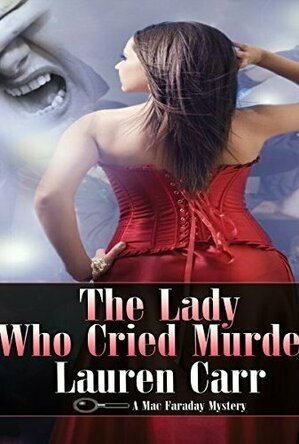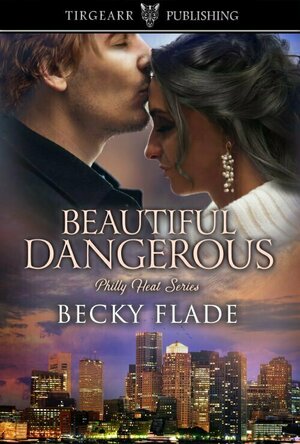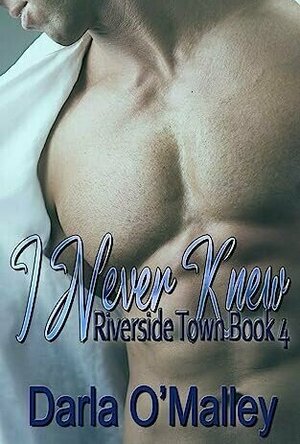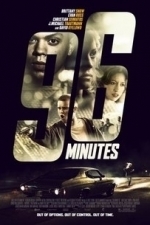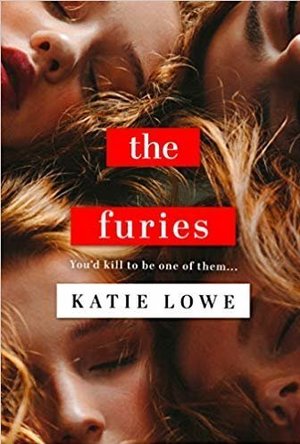Search
Search results
Lindsay (1793 KP) rated The Lady Who Cried Murder (Mac Faraday Mystery #6) in Books
Apr 16, 2022
If you are looking for murder or mystery to enjoy, Lauren Carr will not disappoint. I read almost all of her books. Her books will have you lured in for more than you are expecting. Each book or audiobook can be read as a standalone though you can read them in series. This one is about a girl who wants to be a celebrity but will see get it all and easy money. Will she get it all, or will she pay the price?
There seem to be more secrets and murders than one person can handle. We meet a mother who thinks her daughter has stood abducted. The daughter shows up at a press conference and has set up her mother. Her mother is angry and does some things and changes her will. Whatever happens to her daughter Khole?
David does not want to stand up once more, so he does the interviewer something by checking it out. But do they listen to him when he wants to make sure it is not a setup to make it a circus of the Spenser police department?
Does David find Khole killed and cut up? Who had done it and why? What is Khole's big announcement about what she would tell the interview? We seem to be working with David and Mac and Cameron and Joshua. The team appears to be paired up and works out who the killer is? Guess who gets pulled into these are their girlfriends. You will not guess who is behind all the murders. This one ended up having me guessing until the end. I still did not know who it was up to until the end.
There seem to be more secrets and murders than one person can handle. We meet a mother who thinks her daughter has stood abducted. The daughter shows up at a press conference and has set up her mother. Her mother is angry and does some things and changes her will. Whatever happens to her daughter Khole?
David does not want to stand up once more, so he does the interviewer something by checking it out. But do they listen to him when he wants to make sure it is not a setup to make it a circus of the Spenser police department?
Does David find Khole killed and cut up? Who had done it and why? What is Khole's big announcement about what she would tell the interview? We seem to be working with David and Mac and Cameron and Joshua. The team appears to be paired up and works out who the killer is? Guess who gets pulled into these are their girlfriends. You will not guess who is behind all the murders. This one ended up having me guessing until the end. I still did not know who it was up to until the end.
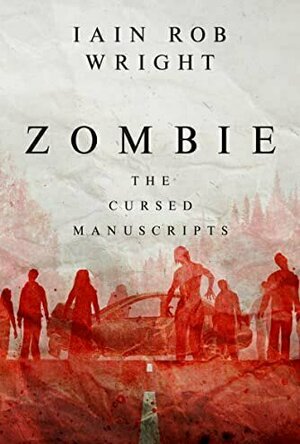
Zombie (The Cursed Manuscripts)
Book
On December 21, 2012, according to the Mayan Calendar, the world was supposed to end. It didn't. But...
Debbiereadsbook (1656 KP) rated Beautiful Dangerous (Philly Heat Series, #4) in Books
Oct 4, 2023
I liked this, just didn't love it.
Independent reviewer for Archaeolibrarian, I was gifted my copy of this book.
The book title shows as book 3 in the Philly Heat series, but some sites has this at book 4, but it doesn't matter where it sits, it can be read as a stand alone within the series. Alex (Fall To Pieces) and Trudy (Yesterday's Over) do appear here, but you don't need their stories to follow this one. I've read both those books, and much preferred Fall To Pieces then Yesterday's Over and indeed, this one.
I liked this book, I just didn't love it.
I liked (if that's the right word!) the increasing issue with the stalker. That they were ALREADY scaring Hannah before she met with Doyle. And said stalker gets mighty angry about Doyle, let me tell ya!
I liked that I didn't see who was doing the stalking, at all! That one threw me off a bit, cos it was not who I thought. I liked the twist that took, too, heading back a year ago to her brother's murder.
I felt the romance came out of nowhere. there seemed to be little build up to that. I liked that it is, again, a backdrop to the major crime going on, rather than front and centre. I think I might have enjoyed this one if there had been NO romance on page, to be honest.
It's well written, from both Doyle and Hannah's point of view. I saw no spelling or editing errors to spoil my reading.
I just think that maybe this author isn't really for ME. I stress the ME point! I really did enjoy Fall To Pieces, but the other books have been a bit behind that one.
3 good, but not for me, stars
*same worded review will appear elsewhere
The book title shows as book 3 in the Philly Heat series, but some sites has this at book 4, but it doesn't matter where it sits, it can be read as a stand alone within the series. Alex (Fall To Pieces) and Trudy (Yesterday's Over) do appear here, but you don't need their stories to follow this one. I've read both those books, and much preferred Fall To Pieces then Yesterday's Over and indeed, this one.
I liked this book, I just didn't love it.
I liked (if that's the right word!) the increasing issue with the stalker. That they were ALREADY scaring Hannah before she met with Doyle. And said stalker gets mighty angry about Doyle, let me tell ya!
I liked that I didn't see who was doing the stalking, at all! That one threw me off a bit, cos it was not who I thought. I liked the twist that took, too, heading back a year ago to her brother's murder.
I felt the romance came out of nowhere. there seemed to be little build up to that. I liked that it is, again, a backdrop to the major crime going on, rather than front and centre. I think I might have enjoyed this one if there had been NO romance on page, to be honest.
It's well written, from both Doyle and Hannah's point of view. I saw no spelling or editing errors to spoil my reading.
I just think that maybe this author isn't really for ME. I stress the ME point! I really did enjoy Fall To Pieces, but the other books have been a bit behind that one.
3 good, but not for me, stars
*same worded review will appear elsewhere
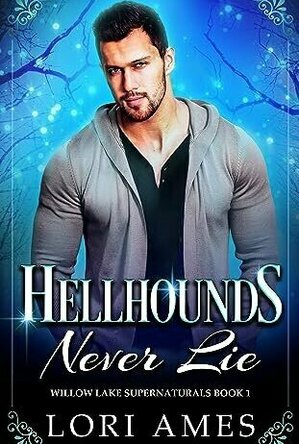
Hellhounds Never Lie (Willow Lake Supernaturals #1)
Book
A mage without magic. A hellhound without a home. A greedy wolf pack in the hills. Ash is...
Paranormal MM Romance
Merissa (13770 KP) rated I Never Knew (Riverside Town #4) in Books
Jul 3, 2023
I NEVER KNEW is the fourth book in the Riverside Town series, but I haven't read any of the others, and had no difficulties following this story or the characters involved.
Ryan is an angry young man who hides his feelings behind insults and gruffness. Elijah is the owner of a cafe, taking over when his mum and dad died, putting his own dreams on hold. Together, they are grumpy/sunshine and a delight to read about. I loved the explanations given for Ryan, to help you understand his character - the reasons for his anger and also his lack of enjoyment of sex until he met Elijah. I thought these were done brilliantly, giving details without too much drama.
Elijah has his own issues to deal with, trying to run a cafe that is leaking money with workers who don't show up. He is too nice of a guy and I was glad when he toughened up a bit on them. I don't like it when people are taken advantage of - even in books! I liked him marshmallow soft in the other areas though.
This is a fast-paced story and it works! From beginning to end, their relationship is just how it should be. Why question something when it's so right?! Elijah and Ryan got the ending I was hoping for, and I'm so very happy about that. I am definitely returning to Riverside Town and catching up on some of the others now. Definitely recommended by me.
** same worded review will appear elsewhere **
* A copy of this book was provided to me with no requirements for a review. I voluntarily read this book; the comments here are my honest opinion. *
Merissa
Archaeolibrarian - I Dig Good Books!
Jun 29, 2023
Ryan is an angry young man who hides his feelings behind insults and gruffness. Elijah is the owner of a cafe, taking over when his mum and dad died, putting his own dreams on hold. Together, they are grumpy/sunshine and a delight to read about. I loved the explanations given for Ryan, to help you understand his character - the reasons for his anger and also his lack of enjoyment of sex until he met Elijah. I thought these were done brilliantly, giving details without too much drama.
Elijah has his own issues to deal with, trying to run a cafe that is leaking money with workers who don't show up. He is too nice of a guy and I was glad when he toughened up a bit on them. I don't like it when people are taken advantage of - even in books! I liked him marshmallow soft in the other areas though.
This is a fast-paced story and it works! From beginning to end, their relationship is just how it should be. Why question something when it's so right?! Elijah and Ryan got the ending I was hoping for, and I'm so very happy about that. I am definitely returning to Riverside Town and catching up on some of the others now. Definitely recommended by me.
** same worded review will appear elsewhere **
* A copy of this book was provided to me with no requirements for a review. I voluntarily read this book; the comments here are my honest opinion. *
Merissa
Archaeolibrarian - I Dig Good Books!
Jun 29, 2023
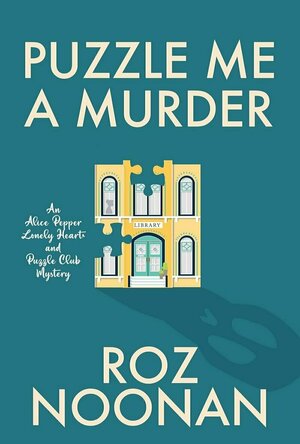
Puzzle Me a Murder
Book
The Golden Girls meets puzzle lovers in New York Times bestselling author Roz Noonan's first Pacific...
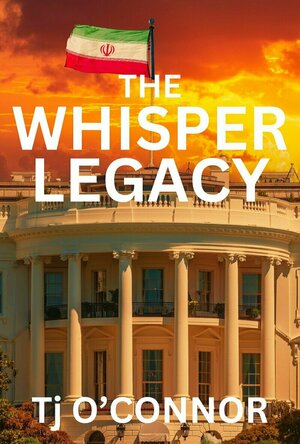
The Whisper Legacy (Pappa Legacy #1)
Book
Curran’s enemies thought he was dead. They were wrong. He thought his past was left on the Voula...
Political Thriller Action Detective Mystery
Kristy H (1252 KP) rated Small Great Things in Books
Feb 1, 2018
Ruth Jefferson is a successful labor and delivery nurse with over twenty years of experience. She has a nice home and a college-bound seventeen-year-old son, Edison. She also happens to be African American. When Ruth takes over for a colleague at shift change, she is simply doing a checkup on newborn baby boy Davis. But after his checkup, she's told Davis' parents don't want her touching their child. A post-it note in his file states that no African American staff should be touching the patient. Ruth is shocked-- and angry. The next day, when Davis has a medical emergency, Ruth is faced with a choice. Does she help the baby--defying the order of the parents and her supervisor? Ruth's decision leads her on a path that involves the police and being charged with a serious crime. Police come into her home, handcuffing her and her son. Her public defender, Kennedy McQuarrie, recommends that Ruth's defense not involve race: a lightning rod for juries, she says. But Ruth is angry and humiliated and wants to clear her name, at whatever the cost.
This is a touching and powerful novel. Told from the varying points of view of Ruth, Kennedy, and Turk--baby Davis' father-- it is a compelling look at how race and family history shapes the person we become. It is a poignant story at points: it is amazing what people can rationalize when it comes to hatred. I found the novel very fitting right now, with what's going on in the U.S. Honestly, it's very frightening at times and hits a little too close to home.
Picoult's characters are well-formed and dynamic, and you find yourself drawn into parts of each.
Turk, obviously, despite the loss of his child, is not a sympathetic character, but he is a complex one; his progression over the course of the novel is intriguing, and it's amazing how Picoult did not make him a one dimensional white supremacist. The book is extremely well-researched; both from the side of white supremacy, as well as racism and the medical aspects of Davis' case. Kennedy is likeable and her struggle with Ruth's case, as she realizes the depth of both the visible and latent racism her client faces on a daily basis, is real and relatable. I applaud Picoult for tackling such a difficult subject with such honesty. It's almost as if, through Kennedy, she's admitting exactly what she doesn't know. (I highly recommend reading Picoult's afterword, as well.)
For me, the hardest parts of the book was that it gets a little too poetic in the Jodi Picoult way (those who frequently read her novels will identify), with her waxing on about race and parents and being brought together, versus letting the story tell itself. At points the book just goes on and on a bit, versus getting to the story and the point. There are lots of little subplots that go off, detracting at times from the main story and frustrating the reader. And, of course, there are some weird twists and plot points in the typical Picoult style, though they don't seem to pack the punch of her older novels. It all wraps up a little too smoothly, though I have to confess I sort of enjoyed the ending. It may have been a bit trite, but I am often a sucker for such things.
Overall, I was impressed with how Picoult approached this novel, and I enjoyed the storyline for the most part (I was certainly invested), though it dawdled at times and ended a bit too easily. I'd rate this a strong 3.5 - 3.75 stars. Certainly worth reading, especially if you're a Picoult fan.
I received a copy of this novel from the publisher and Netgalley; is available everywhere as of 10/11/2016.
This is a touching and powerful novel. Told from the varying points of view of Ruth, Kennedy, and Turk--baby Davis' father-- it is a compelling look at how race and family history shapes the person we become. It is a poignant story at points: it is amazing what people can rationalize when it comes to hatred. I found the novel very fitting right now, with what's going on in the U.S. Honestly, it's very frightening at times and hits a little too close to home.
Picoult's characters are well-formed and dynamic, and you find yourself drawn into parts of each.
Turk, obviously, despite the loss of his child, is not a sympathetic character, but he is a complex one; his progression over the course of the novel is intriguing, and it's amazing how Picoult did not make him a one dimensional white supremacist. The book is extremely well-researched; both from the side of white supremacy, as well as racism and the medical aspects of Davis' case. Kennedy is likeable and her struggle with Ruth's case, as she realizes the depth of both the visible and latent racism her client faces on a daily basis, is real and relatable. I applaud Picoult for tackling such a difficult subject with such honesty. It's almost as if, through Kennedy, she's admitting exactly what she doesn't know. (I highly recommend reading Picoult's afterword, as well.)
For me, the hardest parts of the book was that it gets a little too poetic in the Jodi Picoult way (those who frequently read her novels will identify), with her waxing on about race and parents and being brought together, versus letting the story tell itself. At points the book just goes on and on a bit, versus getting to the story and the point. There are lots of little subplots that go off, detracting at times from the main story and frustrating the reader. And, of course, there are some weird twists and plot points in the typical Picoult style, though they don't seem to pack the punch of her older novels. It all wraps up a little too smoothly, though I have to confess I sort of enjoyed the ending. It may have been a bit trite, but I am often a sucker for such things.
Overall, I was impressed with how Picoult approached this novel, and I enjoyed the storyline for the most part (I was certainly invested), though it dawdled at times and ended a bit too easily. I'd rate this a strong 3.5 - 3.75 stars. Certainly worth reading, especially if you're a Picoult fan.
I received a copy of this novel from the publisher and Netgalley; is available everywhere as of 10/11/2016.
Darren (1599 KP) rated 96 Minutes (2012) in Movies
Jun 20, 2019
Story: 96 Minutes starts by introducing us to all the characters involved, we have Lena (Serratos) a young woman questioning her relationship choice, Raymond (Martin) working hard at school and a job for Duane (Oyelowo), Kevin (Trautmann) an angry young man who doesn’t enjoy his life where his mother has caused problems, Dre (Ross) a young man that is finally achieving his grades but won’t leave his past behind him and Carley (Snow) a student that is studying law. All of this is leads to a carjacking gone wrong.
The carjacking includes an injured Lena being cared for by Carley after Kevin gets into the mind-set of trying to impress the local gang that Dre gets dragged into supporting his friend.
96 Minutes is a drama thriller that shows the effects of one wrong moment in life, we see how these four people are trying to start something in their lives but when they clash each person’s life will be changed. The film shows how the four characters are average everyday people that shows us how easily anyone could fall into the events. The story does bounce between showing us the normal lives of our characters and the carjacking which shows the character’s mind-sets are through each situation. This is a very powerful drama that is very good to watch.
Actor Review
Brittany Snow: Carley is the law student that is about to graduate but without her father seeing the important part of her life. She finds herself on the wrong end of a carjacking where she must tend to the wounds Lena has received. Brittany showed she can pull off a serious role to go against her more commercial roles.carley
Christian Serratos: Lena is a fellow student that is having an awful day when she discovers her boyfriend is seeing someone else, she then wrecks her car and just wanting to go home she finds herself injured during a carjacking. Christian is great in this role even with half of the film she finds herself injured.
J Michael Trautmann: Kevin is an angry young man who lives with his constantly abused mother while trying to impress the local gang. He is good friends with Dre who tries to calm him down but this only leads to him jacking Carley’s car putting Dre’s future at risk too. J is also great in this role showing how easily young men can be pushed into committing crimes.
Evan Ross: Dre is a young man from the wrong neighbourhood who has achieved something by graduating and wants to show Kevin the future he could one day have. He ends up being the driver in the carjacking but wants to do the right thing. Evan gives us a great performance where he shines through.dre
Support Cast: 96 Minutes has a supporting cast that really works well with our main four characters.
Director Review: Aimee Lagos – Aimee gives us a powerful drama that keeps us on edge wondering what is happens next.
Thriller: 96 Minutes keeps us wondering what will happen to our characters next as the story unfolds.
Settings: 96 Minutes shows the two worlds clashing with two boys coming from the wrong side of town trying to make their own future while the girls show where the next stage will be.
Suggestion: 96 Minutes is one I think everyone should watch at least once. (Watch)
Best Part: Performances are brilliant.
Worst Part: Jumping between the two sometimes comes off confusing.
Believability: Inspired by true events.
Chances of Tears: No
Chances of Sequel: No
Post Credits Scene: No
Oscar Chances: No
Runtime: 1 Hour 33 Minutes
Tagline: Out of options. Out of control. Out of time.
Overall: Brilliant drama that really sucks you in to see one life changing events.
https://moviesreview101.com/2016/05/31/96-minutes-2011/
The carjacking includes an injured Lena being cared for by Carley after Kevin gets into the mind-set of trying to impress the local gang that Dre gets dragged into supporting his friend.
96 Minutes is a drama thriller that shows the effects of one wrong moment in life, we see how these four people are trying to start something in their lives but when they clash each person’s life will be changed. The film shows how the four characters are average everyday people that shows us how easily anyone could fall into the events. The story does bounce between showing us the normal lives of our characters and the carjacking which shows the character’s mind-sets are through each situation. This is a very powerful drama that is very good to watch.
Actor Review
Brittany Snow: Carley is the law student that is about to graduate but without her father seeing the important part of her life. She finds herself on the wrong end of a carjacking where she must tend to the wounds Lena has received. Brittany showed she can pull off a serious role to go against her more commercial roles.carley
Christian Serratos: Lena is a fellow student that is having an awful day when she discovers her boyfriend is seeing someone else, she then wrecks her car and just wanting to go home she finds herself injured during a carjacking. Christian is great in this role even with half of the film she finds herself injured.
J Michael Trautmann: Kevin is an angry young man who lives with his constantly abused mother while trying to impress the local gang. He is good friends with Dre who tries to calm him down but this only leads to him jacking Carley’s car putting Dre’s future at risk too. J is also great in this role showing how easily young men can be pushed into committing crimes.
Evan Ross: Dre is a young man from the wrong neighbourhood who has achieved something by graduating and wants to show Kevin the future he could one day have. He ends up being the driver in the carjacking but wants to do the right thing. Evan gives us a great performance where he shines through.dre
Support Cast: 96 Minutes has a supporting cast that really works well with our main four characters.
Director Review: Aimee Lagos – Aimee gives us a powerful drama that keeps us on edge wondering what is happens next.
Thriller: 96 Minutes keeps us wondering what will happen to our characters next as the story unfolds.
Settings: 96 Minutes shows the two worlds clashing with two boys coming from the wrong side of town trying to make their own future while the girls show where the next stage will be.
Suggestion: 96 Minutes is one I think everyone should watch at least once. (Watch)
Best Part: Performances are brilliant.
Worst Part: Jumping between the two sometimes comes off confusing.
Believability: Inspired by true events.
Chances of Tears: No
Chances of Sequel: No
Post Credits Scene: No
Oscar Chances: No
Runtime: 1 Hour 33 Minutes
Tagline: Out of options. Out of control. Out of time.
Overall: Brilliant drama that really sucks you in to see one life changing events.
https://moviesreview101.com/2016/05/31/96-minutes-2011/
Ivana A. | Diary of Difference (1171 KP) rated The Furies in Books
Feb 3, 2020
<a href="https://diaryofdifference.com/">Blog</a>; | <a href="https://www.facebook.com/diaryofdifference/">Facebook</a>; | <a href="https://twitter.com/DiaryDifference">Twitter</a>; | <a href="https://www.instagram.com/diaryofdifference/">Instagram</a>; | <a href="https://www.pinterest.co.uk/diaryofdifference/pins/">Pinterest</a>;
<img src="https://i1.wp.com/diaryofdifference.com/wp-content/uploads/2019/05/Book-Review-Banner-2.png?resize=1024%2C576&ssl=1"/>;
<b><i>A high-school mystery full of suspense. A murder, a questionable friendship and witchcraft. The Furies is a modern take of all witchcraft legends and curses!</i></b>
When a teenage girl is found dead, sitting on a swing, with no clues of how the death occurred, we are set up to trust no one from the very beginning. The story begins with Violet, who start the story from the very beginning, until finally leading us to how and why this murder happened. She comes to the new school and she becomes friends with an elite group of girls and a secret advanced study group, that focuses on witchcraft and influential witches connected to the school.
From the fist to the last chapter, you can feel the suspense. The story is unique and it certainly kept me on my toes. I had trouble with who the narrator is, and in each chapter it’s Violet, but because it was written in first person and her tone changed, I kept looking for clues as to whether the narrator has changed or not. The names are also not mentioned often, which added a bit of agitation at times.
I loved every part of the book that included witchcraft. There were awful lot of scenes about this, so trust me, I was more than satisfied. From witchcraft history, to a secret society, to performing rituals, The Furies will teleport you in that world.
I liked how the friendships were developed, but I didn’t cheer for them. I could perfectly understand how all girls felt and why they all made certain choices, and that is due to the excellent writing skills Katie has. I felt different emotions for them all, loved them, hated them and pitied them.
I couldn’t help but be annoyed with Violet, for never saying no, for settling, for being so naive and so needy to be accepted. I couldn’t help but be angry at her for knowing things and choosing to do nothing about it. I felt so angry at the girls, for all the drama caused and for discouraging people around them. I can’t help but feel conflicted with Violet though, because despite everything, she belonged in that group, and with those friends. As wrong as it may sound, she did fit. But with time, she did change and she did find her true self. And her development was the gem that made me really fall in love with this book.
<b>And then it struck me…</b>
I wasn’t mad at Violet. I was mad at all of us that have been in such position and chose the wrong things. I felt upset at all of us, who have changed themselves to fit in a group and forgot who they really are. To all of us, who were too afraid to say no to the popular girls in high-school.
I highly recommend it to all girls in high-school, to all mums and to everyone that loves witchcraft and mystery. You will definitely love this book!
Thank you to Katie Lowe, and the publisher, HarperCollins, for sending me a free hardcover copy in exchange for my honest review.
<a href="https://diaryofdifference.com/">Blog</a>; | <a href="https://www.facebook.com/diaryofdifference/">Facebook</a>; | <a href="https://twitter.com/DiaryDifference">Twitter</a>; | <a href="https://www.instagram.com/diaryofdifference/">Instagram</a>; | <a href="https://www.pinterest.co.uk/diaryofdifference/pins/">Pinterest</a>;
<img src="https://i1.wp.com/diaryofdifference.com/wp-content/uploads/2019/05/Book-Review-Banner-2.png?resize=1024%2C576&ssl=1"/>;
<b><i>A high-school mystery full of suspense. A murder, a questionable friendship and witchcraft. The Furies is a modern take of all witchcraft legends and curses!</i></b>
When a teenage girl is found dead, sitting on a swing, with no clues of how the death occurred, we are set up to trust no one from the very beginning. The story begins with Violet, who start the story from the very beginning, until finally leading us to how and why this murder happened. She comes to the new school and she becomes friends with an elite group of girls and a secret advanced study group, that focuses on witchcraft and influential witches connected to the school.
From the fist to the last chapter, you can feel the suspense. The story is unique and it certainly kept me on my toes. I had trouble with who the narrator is, and in each chapter it’s Violet, but because it was written in first person and her tone changed, I kept looking for clues as to whether the narrator has changed or not. The names are also not mentioned often, which added a bit of agitation at times.
I loved every part of the book that included witchcraft. There were awful lot of scenes about this, so trust me, I was more than satisfied. From witchcraft history, to a secret society, to performing rituals, The Furies will teleport you in that world.
I liked how the friendships were developed, but I didn’t cheer for them. I could perfectly understand how all girls felt and why they all made certain choices, and that is due to the excellent writing skills Katie has. I felt different emotions for them all, loved them, hated them and pitied them.
I couldn’t help but be annoyed with Violet, for never saying no, for settling, for being so naive and so needy to be accepted. I couldn’t help but be angry at her for knowing things and choosing to do nothing about it. I felt so angry at the girls, for all the drama caused and for discouraging people around them. I can’t help but feel conflicted with Violet though, because despite everything, she belonged in that group, and with those friends. As wrong as it may sound, she did fit. But with time, she did change and she did find her true self. And her development was the gem that made me really fall in love with this book.
<b>And then it struck me…</b>
I wasn’t mad at Violet. I was mad at all of us that have been in such position and chose the wrong things. I felt upset at all of us, who have changed themselves to fit in a group and forgot who they really are. To all of us, who were too afraid to say no to the popular girls in high-school.
I highly recommend it to all girls in high-school, to all mums and to everyone that loves witchcraft and mystery. You will definitely love this book!
Thank you to Katie Lowe, and the publisher, HarperCollins, for sending me a free hardcover copy in exchange for my honest review.
<a href="https://diaryofdifference.com/">Blog</a>; | <a href="https://www.facebook.com/diaryofdifference/">Facebook</a>; | <a href="https://twitter.com/DiaryDifference">Twitter</a>; | <a href="https://www.instagram.com/diaryofdifference/">Instagram</a>; | <a href="https://www.pinterest.co.uk/diaryofdifference/pins/">Pinterest</a>;
